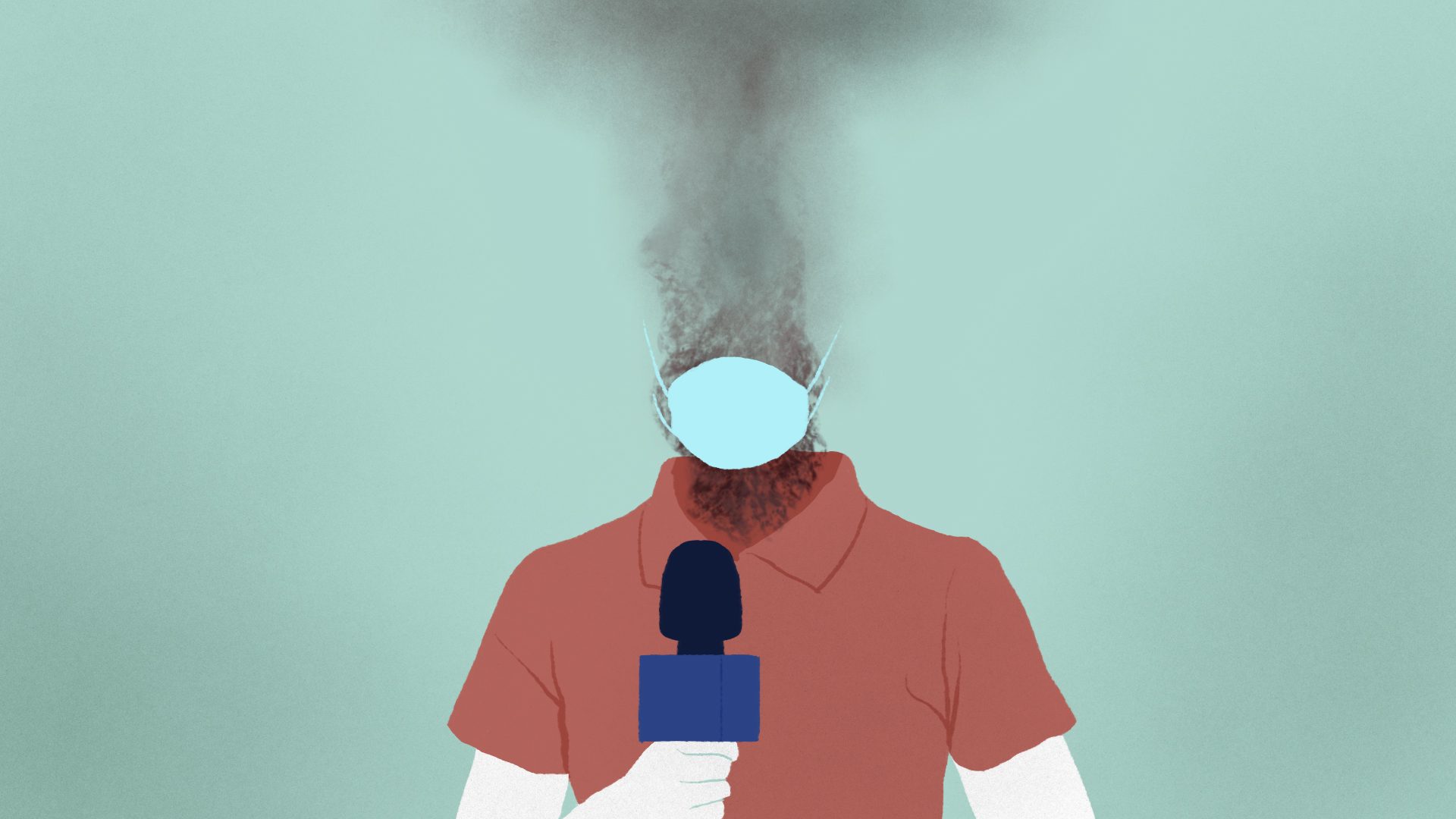SUMMARY
This is AI generated summarization, which may have errors. For context, always refer to the full article.

Journalists around the globe face unprecedented challenges during the COVID-19 pandemic, according to the first results of a worldwide research series.
The International Center for Journalists (ICFJ) and the Tow Center for Digital Journalism at Columbia University launched the Journalism and the Pandemic Project in April 2020 to determine the global crisis’ impact on the industry.
Survey respondents included at least 1,400 English-speaking journalists in 125 countries.
Results show that disinformation by politicians is among the top challenges journalists face. Nearly half of the respondents (46%) highlighted the lack of trust in governments, while one-third lamented their reliance on government sources and statements to report on the pandemic.
Nearly 7 out of 10 respondents also identified Facebook as the most prolific spreader of disinformation. Yet, at the same time, 32% said they were more reliant on social media platforms to connect with audiences.
Personal toll
Nearly 8 out of 10 said their most significant need was funding to cover operating costs, including journalists’ salaries.
In the Philippines alone, several community news groups were shut down due to financial constraints, while the country’s leading newspaper, the Philippine Daily Inquirer, has employed cost-cutting measures.
In Indonesia, the management of Jakarta Post, the leading English daily, announced its plan to lay off two-thirds of its employees, citing ad revenue decline and the coronavirus pandemic. (READ: How the COVID-19 pandemic is affecting the media)
Seven out of 10 respondents identified the psychological and emotional impacts of the crisis as the most difficult aspect of their job.
The results also highlight an urgent need for mental health support and interventions to help alleviate burnout among journalists.
Here are other red flags revealed in the survey:
- 30% of respondents said that their news organizations had not supplied field reporters with a single piece of protective equipment during the first wave of the pandemic.
- 17% with knowledge of their organizations’ financial losses reported that revenue was down over 75% since the pandemic began; 43% indicated that revenues were down by over half.
- 81% said they encounter disinformation at least weekly, with more than one-quarter (28%) identifying false information many times a day.
- 20% said their experience of online harassment was “much worse” during the pandemic.
- 48% said their sources had expressed fear of retaliation for speaking to journalists during the pandemic.
Some reasons for optimism
Despite the challenges, journalists also cited reasons to be optimistic amid the global health crisis:
- 43% said they felt audience trust in their journalism, or that of their news organization, had increased during the first wave of the pandemic.
- 61% reported that they felt an increased commitment to journalism as a result of the pandemic.
The research was conducted by Dr Julie Posetti, ICFJ’s Global Director of Research; Emily Bell, Leonard Tow Professor of Journalism and the director of the Tow Center for Digital Journalism at the Columbia Journalism School; and Dr Pete Brown, research director at the Tow Center for Digital Journalism.
The report is the first of a data-driven research series aimed to address the challenges of reporting on COVID-19, and to offer guideposts for reimagining a post-pandemic future for journalism.
The Journalism and the Pandemic Project is supported by global philanthropic organization Luminate, and the Committee to Protect Journalists (CPJ) is a partner organization. – Rappler.com
Add a comment
How does this make you feel?


![[Time Trowel] Evolution and the sneakiness of COVID](https://www.rappler.com/tachyon/2024/02/tl-evolution-covid.jpg?resize=257%2C257&crop=455px%2C0px%2C1080px%2C1080px)







There are no comments yet. Add your comment to start the conversation.